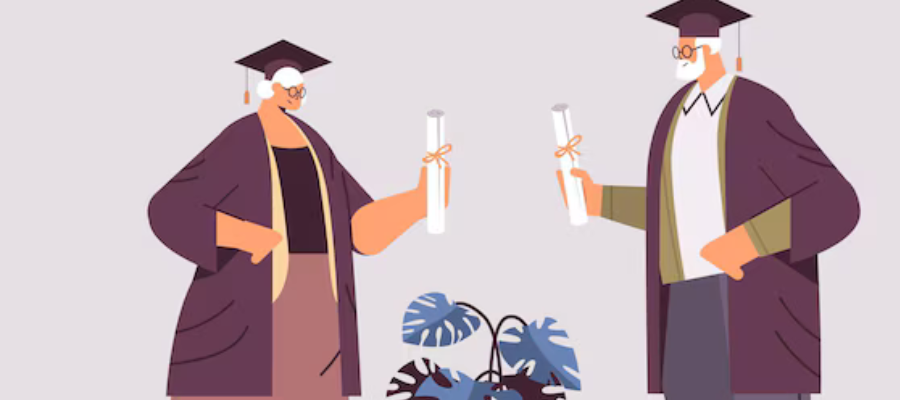The Significance of National Education Day


National Education Day in India is on November 11th, celebrated every year as a day of hope, gratitude, and remembrance. On this day in history, Maulana Abul Kalam Azad, the first Education Minister of independent India and a foremost advocate for education, was born. Azad was a pioneering leader, academic, and supporter of global education. His impact on India’s educational system is still recognized today. In addition to honoring his legacy, National Education Day draws attention to the continued importance of inclusive, high-quality education in determining India’s future.
Why November 11?
The date of November 11 is not random. This is the birthday of Maulana Abul Kalam Azad. From 1947 until 1958, he assisted as Education Minister, building the foundation for multiple institutions and policies that still impact education in current India. In order to better meet the requirements and aims of a recently independent India, Azad endorsed the development of technical colleges, free and mandatory primary education, and a normal revamp of the country’s educational system. We honor not only the person but also the values he held and the educational institutions he donated to by observing National Education Day on his birthday.
The Legacy of Maulana Abdul Kalam Azad
Early on in India’s history, Maulana Azad made remarkable contributions to education. Irrespective of social status, he proposed that every individual should have access to education. Azad was a strong advocate of assembling universities that would permit Indian students to pursue science, engineering, and technology at a higher level. Institutions like the University Grants Commission (UGC) and the Indian Institutes of Technology (IITs) were founded under his support and have since developed into crucial centers for research and education in India.
Azad also mentioned the importance of education in promoting secularism and fellowship. In a multicultural nation like India, where people from multiple linguistic, religious, and cultural origins live together, he thought that education can be an integrating component. One of the primary aims of National Education Day is the concept that education can get people together, reminding individuals of the larger goal of education, which is to promote social harmony.
National Education Day: A Day of Remembrance
On National Education Day, individuals have the opportunity to account for the circumstance of education in current India, noting its advancements as well as its current challenges. With programs like the Right to Education (RTE) Act, which requires free and mandatory education for children aged 6 to 14, India has accomplished impactful progress in maximizing access to education in these years. Initiatives to grow literacy, including the Sarva Shiksha Abhiyan and midday meal programs, have been effective in increasing school attendance and minimizing dropout rates.
But these are still ongoing challenges. In multiple villages and ignored parts of India, there are still issues with poor infrastructure, inequality, and quality of education. Despite multiple government initiatives, there are great differences in educational execution between urban and rural areas, between genders, and across socioeconomic backgrounds. National Education Day reminds us that even though we have made advances, much more has to be done to assure that each Indian student receives an exceptional education.
Why National Education Day Matters
According to a popular conviction, a nation’s possibility can be unleashed through education. It is impossible to overestimate the importance of investing in education in a nation that is developing rapidly, like India, where half of the population is under 25. National Education Day reminds us of the importance of education for societal growth, economic enhancements, and individual empowerment. People who receive high-quality education gain values, abilities, and information required for the betterment of their lives and society.
However, National Education Day is about more than just advancing learning. It also includes promoting the correct way of education. education that helps youth for the challenges of the twenty-first century by focusing on creativity, tolerance, and critical thinking.
The Role of Education in Social Transformation
Education’s capability to impact social change is one of its most important elements. This metamorphosing impact is mentioned on National Education Day, which assists as an alarm of the ways in which education may minimize poverty, gender gap, and enhance health and wellbeing. Many social outcomes are usually connected to education. For example, individuals with higher levels of education have more chances to participate in civic engagement, make health-related choices, and have a positive influence on society.
Additionally, education is an impactful balancer. It allows those from underprivileged backgrounds the opportunity to higher their socioeconomic position. In order for each individual, regardless of background, to have the chance to realize their full potential, National Education Day challenges us to consider methods to make education more fair and accessible.
Addressing Modern Educational Challenges in India
National Education Day provides a possibility to talk about the shifting issues facing the contemporary educational system. India must prepare its youth for a world that is rapidly changing as technology transforms economies and employment markets around the globe. To give pupils applicable skills like digital literacy, critical thinking, and problem-solving, the educational system must change. Talks about the need to enhance curricula and teaching options to meet future demands can be ignited by National Education Day.
The digital divide is yet another significant obstacle. Even while technology has the potential to completely transform education, many regions of India still lack adequate access to digital resources. When schools went online during the COVID-19 pandemic, many students—especially those in rural areas—struggled to keep up because they lacked digital devices and internet access. To guarantee that all students gain from developments in educational technology, this gap must be closed.
Celebrating Progress and Inspiring Future Change
In addition, National Education Day is a celebration day for the accomplishments and significant events in Indian education. India has generated top-notch academics, professions, and institutions over the years that have had a big impact on the world stage. Students, teachers, and legislators are encouraged to celebrate these successes and to strive for even greater progress on this day.
On National Education Day, educational institutions frequently host a variety of events, including debates, seminars, essay contests, and exhibitions. These gatherings give educators a chance to present their vision for a better educational future while also giving students a forum to voice their thoughts and goals. This kind of National Education Day celebration encourages students to take their studies seriously and raises awareness of the value of education.
The Future of Education in India
National Education Day challenges us to think about how Indian education will develop in the future. The nation has started on a path of substantial educational reform with the recent enactment of the National Education Policy (NEP) 2020. With an emphasis on transdisciplinary learning and skill development, NEP 2020 seeks to make education more inclusive, adaptable, and comprehensive. NEP 2020 aims to equip India’s youth for the opportunities and challenges of the future by giving equal weight to digital competences and foundational literacy.
The policy also highlights the value of vocational training, expanded access to higher education, and early childhood education that is grounded on the mother tongue. National Education Day is a good time to think back on these reforms and how they might be successfully applied to build an educational system that meets the needs and goals of India.
Conclusion: National Education Day as a Call to Action
National Education Day is a call to action as well as a time of remembrance. Its goal is to remind us that education is about building minds, character, and a sense of social duty in addition to textbooks and tests. Maulana Abdul Kalam Azad’s achievements are honored to remind us of the value of foresight, hard work, and a dedication to educational justice.
National Education Day acts as a focal point for residents, educators, legislators, and students to reaffirm our dedication to educational advancement. It serves as a reminder that we must always work as a society to ensure that education is available, inclusive, and empowering for everyone. Although the road ahead may be difficult, we can create an educational system that serves the interests of each individual and advances the welfare of the country as a whole if we work together and put in consistent effort.
Let’s honor those who have fought to make education accessible, celebrate the revolutionizing power of education, and reaffirm our commitment to creating a future in which every kid, regardless of background, has the opportunity to learn, develop, and thrive on this National Education Day. Taking strong actions to build a better, more educated future for further generations is just as crucial as celebrating the past on National Education Day. Aara Consultancy is also dedicated to provide right career solutions and assist students for their brighter future. We provide Career Counseling which helps students to recognize and understand an appropriate career. We also focus on profile building so that each student should adapt the shifting nature of education and work in this rapidly changing world.
We provide 360° Solution for your Education Needs. Contact us






